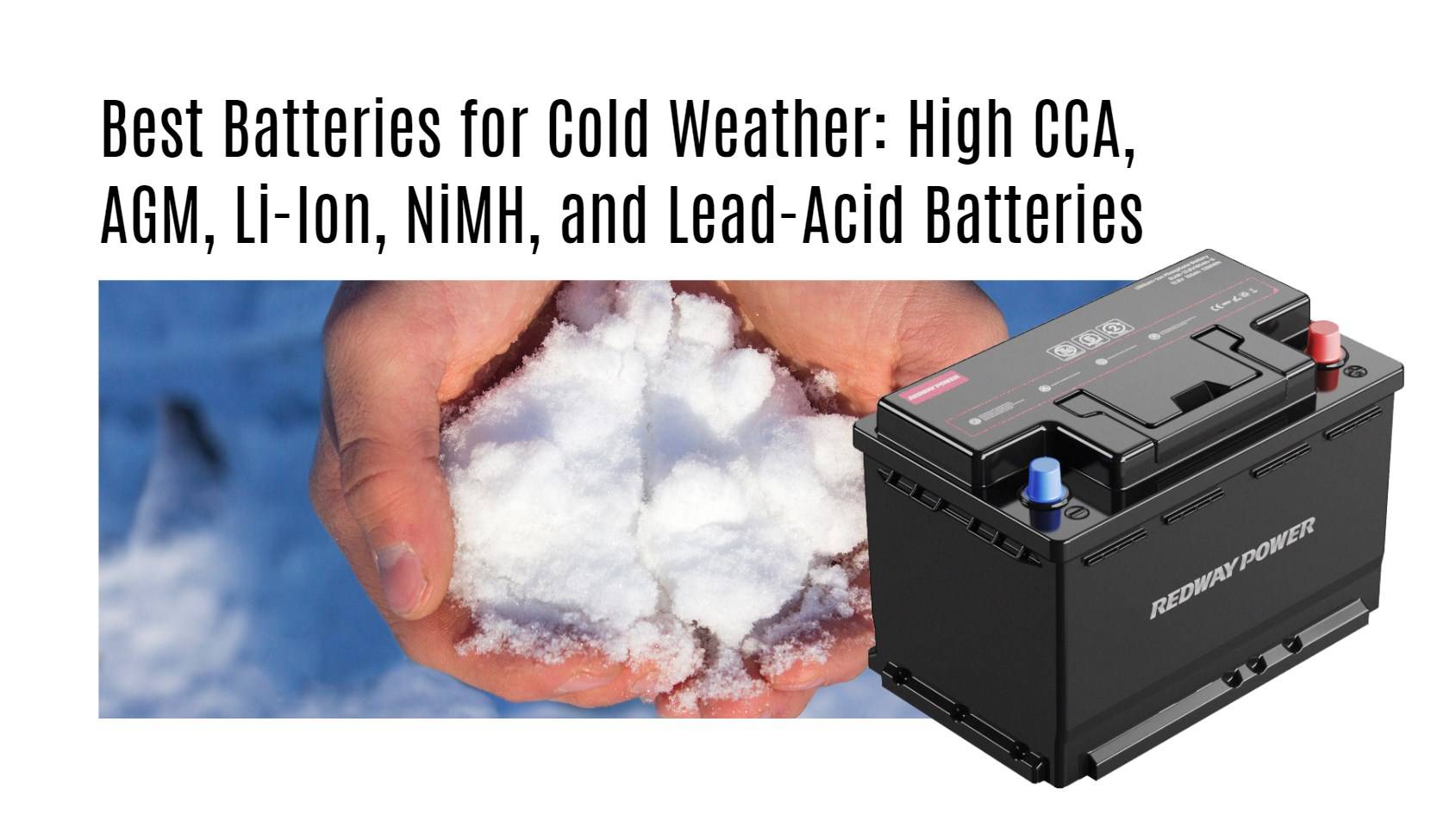When it comes to choosing batteries for cold weather, understanding the different types available and their performance characteristics is crucial. Various battery technologies, including lithium-ion, AGM, and lead-acid, have unique advantages and disadvantages when exposed to low temperatures. This guide will help you select the best battery option for your needs.
What Types of Batteries Perform Best in Cold Weather?
Several battery types are known for their performance in cold conditions:
- Lithium-Ion: Generally performs well even at low temperatures, maintaining a higher capacity compared to other types.
- AGM (Absorbent Glass Mat): Known for its durability and ability to deliver high cold cranking amps (CCA).
- NiMH (Nickel-Metal Hydride): Performs reasonably well but may not be as efficient as lithium-ion or AGM batteries.
- Lead-Acid: While widely used, they can suffer significant capacity loss in extreme cold.
| Battery Type | Performance in Cold Weather |
|---|---|
| Lithium-Ion | Good performance; retains capacity |
| AGM | High CCA; reliable cold starts |
| NiMH | Moderate performance; less efficient |
| Lead-Acid | Significant capacity loss below freezing |
How Do Cold Cranking Amps (CCA) Affect Battery Performance?
Cold Cranking Amps (CCA) is a critical measure of a battery’s ability to start an engine in cold temperatures. The higher the CCA rating, the better the battery can perform under freezing conditions. For example:
- A battery with a CCA of 600 can start an engine reliably even at low temperatures.
| CCA Rating | Starting Capability |
|---|---|
| Below 300 | Poor performance in cold weather |
| 300 – 600 | Adequate for moderate cold |
| Above 600 | Excellent starting power in extreme cold |
Why Is Temperature Management Important for Battery Lifespan?
Temperature management is essential because extreme temperatures can accelerate battery degradation. High temperatures can lead to increased self-discharge rates and reduced lifespan, while low temperatures can impair performance and lead to irreversible damage. Proper management helps maintain optimal operating conditions and prolongs battery life.
What Are the Best Practices for Maintaining Batteries in Winter?
To ensure your batteries perform well during winter:
- Keep Them Charged: Regularly check charge levels and avoid deep discharges.
- Store Indoors: If possible, store batteries indoors where temperatures are more stable.
- Use Insulation: Insulate batteries from extreme cold with thermal wraps or blankets.
| Maintenance Practice | Description |
|---|---|
| Keep Charged | Prevent deep discharges |
| Store Indoors | Protect from temperature fluctuations |
| Use Insulation | Retain heat during extreme cold |
How Do Lithium-Ion Batteries Compare to Lead-Acid Batteries in Cold Conditions?
Lithium-ion batteries generally outperform lead-acid batteries in cold conditions due to their higher energy density and lower self-discharge rates. While lead-acid batteries may lose up to 50% of their capacity at freezing temperatures, lithium-ion batteries can maintain around 80% capacity even at low temperatures.
| Comparison Aspect | Lithium-Ion | Lead-Acid |
|---|---|---|
| Capacity Retention | ~80% at freezing | ~50% at freezing |
| Self-Discharge Rate | Low | Higher |
| Lifespan | Up to 10 years | 3 – 5 years |
What Are the Advantages of AGM Batteries in Winter?
AGM batteries offer several advantages that make them suitable for winter use:
- Higher CCA Ratings: They provide reliable starting power even in extreme cold.
- Low Self-Discharge: AGM batteries retain charge longer when not in use.
- Durability: Their design allows them to withstand harsh conditions without leaking.
Redway Battery has a great solution for those looking for reliable alternatives when managing lithium-ion battery performance effectively.
Why Should You Consider NiMH Batteries for Cold Weather?
NiMH batteries can be a viable option due to their moderate performance in colder conditions. They are less sensitive to temperature fluctuations compared to traditional lead-acid batteries but do not perform as well as lithium-ion or AGM options. They may be suitable for applications where weight is less of a concern.
Tips for Battery Wholesale Buyers
When sourcing batteries:
- Evaluate specific application needs regarding temperature tolerance.
- Choose suppliers who provide comprehensive specifications on CCA ratings and temperature performance.
- Ensure that proper support and warranty options are available from your supplier.
Redway Battery stands out as an excellent choice for battery wholesale buyers or OEM clients seeking reliable partners in lithium battery manufacturing.
Redway Battery Expert Insight
“Selecting the right battery type is crucial for ensuring reliable performance during winter months. By understanding each battery’s strengths and weaknesses, users can make informed choices that enhance their overall experience.”
FAQ Section
- What type of battery performs best in cold weather?
Lithium-ion batteries generally perform best due to their high energy density and low self-discharge rates. - How do CCA ratings affect battery performance?
Higher CCA ratings indicate better starting power in cold temperatures. - What maintenance practices should be followed during winter?
Keep batteries charged, store them indoors if possible, and use insulation against extreme cold. - Why consider AGM batteries for winter use?
AGM batteries offer high CCA ratings, low self-discharge rates, and durability against harsh conditions.




